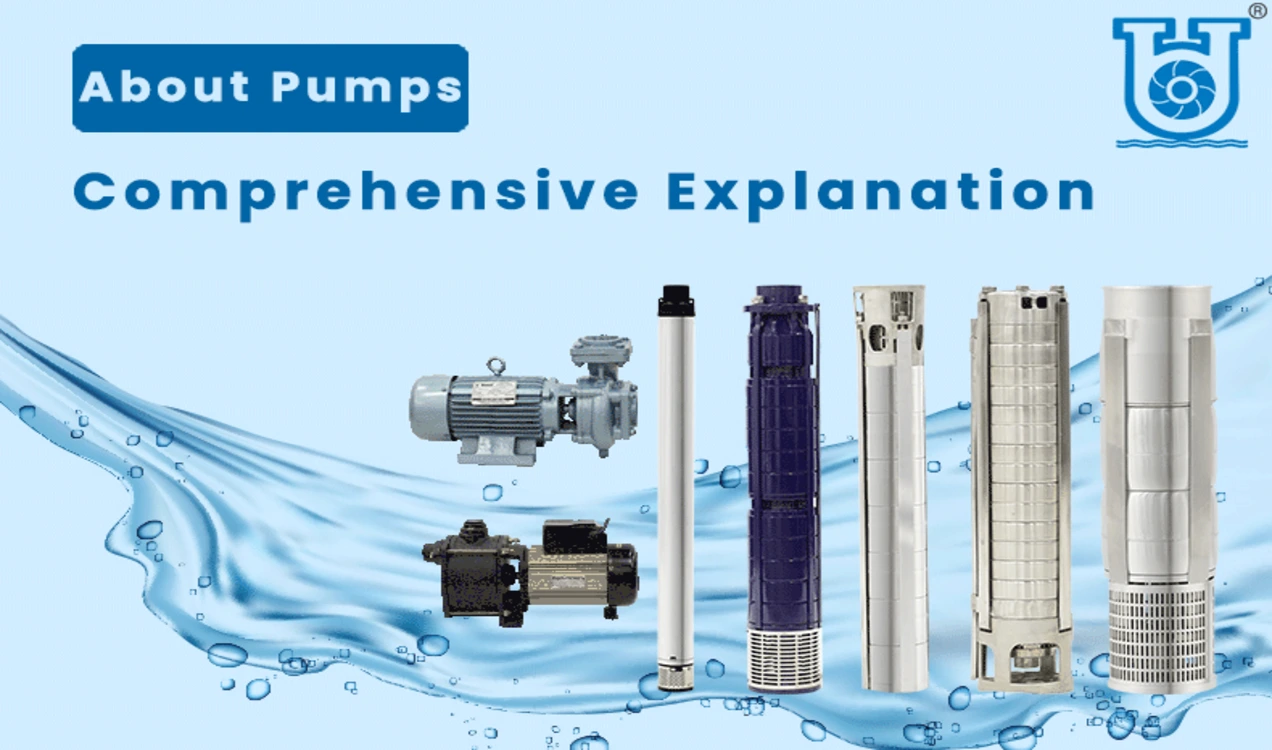A pump is a mechanical device that passes fluids from one location to another. It originated in ancient Egypt and is essentially the first mechanical machine. Today pumps have become the most essential part of our lives whether they are used for supplying water to high-rise buildings or gardens or irrigation or industrial purposes. Let us get a detailed explanation of modern-day pumps.
What is a Pump?
Pumps are mechanical devices usually used to move liquids or gases. This highly functional machine works on the principle of hydraulics i.e., electrical energy is converted into hydraulic energy resulting in mechanical action. Pumps are now available in various types to suit our day-to-day life needs. Besides, pumps come in a wide range of sizes, from small models used in medical applications to massive industrial models.
Components of Pump:
The major components necessary in the construction of pumps are:
- Impellers
- Diffusers
- Delivery Casing
- Pump shaft
- Neck ring
- Strainer
- Bearings
- Coupling
- Suction Inter Connector
Types and Classification of Pumps:
Pumps can be categorized into a variety of types, based on the applications they are used for and the materials they are made of. Each category serves a certain purpose and responds to a particular set of user demands.
Submersible Pumps:
The most well-known domestic or residential water pumps are submersible pumps. They continue to function even when they are completely submerged in water. You can choose between an open well submersible water pump and a borewell submersible water pump depending on your requirements.
Applications:
- Domestic purposes
- Industrial and commercial applications
- High rise Building services
- Rural, Municipal water supply, etc.
Surface Water Pumps:
It is a type of pump that imparts the velocity of a liquid by rotation and then transforms that velocity into the flow. Surface water pumps are one of the most effective pumps in delivering a steady yet powerful water flow. They are the most popular type of pump because of their simple working system.
Applications:
- Industrial operations
- Various manufacturing industries
- Residential water supply
- Pressure boosting
- Fire protection system
Horizontal Openwell Monoblock pumps:
The shaft of this pump is often positioned horizontally between the bearings. The horizontal Openwell Monoblock pump possesses a head that is positioned next to the motor on a horizontal plane in its design. Its efficacy makes it a common choice for pumping services.
Applications:
- For pumping clean water into irrigation & agriculture fields.
- Spraying systems
- Fountains
- To transfer industrial fluids
Vertical Openwell Monoblock Pump:
The shaft in this pump is radially divided with an overhang and is oriented vertically. Vertical open well Monoblock pumps will undoubtedly occupy less floor space if you have a limited surface area and require a pump with a significantly smaller footprint.
Applications:
- Drip Irrigation
- Sprinkler Systems
- Deep well pumping
Centrifugal Monoblock Pumps:
It is a type of centrifugal pump with a single shaft that contains both the pump and the motor. Centrifugal monoblock pumps function well with fresh water and can deliver a steady stream of water with strong force. It is a type of agricultural pump utilized on vast farmlands to carry out heavy-duty functions.
Applications:
- Agricultural work like irrigation and farming
- Small farms
- Gardens
- Domestic water supply
Self-Priming Regenerative Pump:
Centrifugal pumps’ air binding issue can be solved with self-priming pumps, which require water in their casing. It is a particular kind of liquid pump made to start the process with the precise amount of liquid within the chamber or the pump body.
Applications:
- Residential
- Gardening
Solar Pumps:
The pumps are operated on solar energy are known as Solar Pumps. They are advantageous for isolated farming locations where power may not always be accessible. Solar modules power the solar water pump, which aids in extracting groundwater or surface water for cultivation. These pumps are easy to install and tough enough to resist challenging circumstances.
Applications:
- Drinking water supply
- Water for livestock
- Irrigation
Multi-stage Pumps:
A single-stage pump is one made with just one rotating impeller. However, a pump is referred to as a multi-stage pump if its casing contains two or more rotating impellers. When a single-stage pump can’t always deliver high water pressure and great energy efficiency, multi-stage pumps are used.
Applications:
- Water treatment
- Construction
- High-power shower systems
- Irrigation
Fire Hydrant Pump Systems:
A fire hydrant pump system, also called a fire pump, hydrant booster or fire water pump is a whole system all by itself and not a pump. By boosting the power inside the hydrant service these high-force water pumps aim to increase the level of firefighting in the construction industry.
Applications:
- Firefighting systems
- Water transfer
And That’s a Wrap!
We have seen the definition, categories, varieties, and uses of pumps in this article. After going through the article, we can conclude that there exists a pump for almost every requirement. Pumps were designed specifically to transfer or move fluids, liquids, or gas. Since electricity costs are frequently a concern when operating electrical pumps, modern-day water pumps typically offer high output and productivity with minimal power consumption.
Unnati Pumps is India’s top pumps and motors manufacturer, retailer, and exporter offering a wide variety of pumps in different categories. Check out our exclusive range of pumps to find a cost-effective and adequate response to all of your needs! Get in touch with us today.


